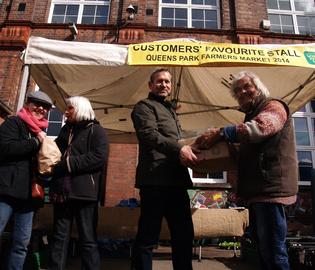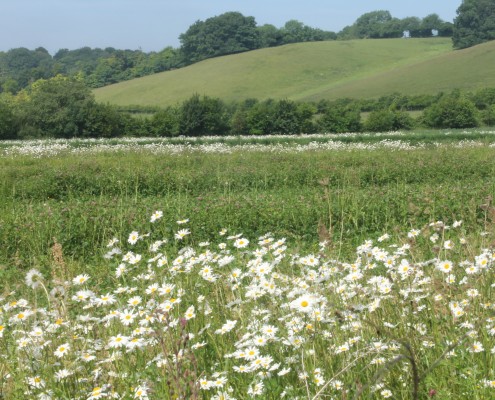by Sam Leigh
Every Sunday afternoon, a school playground round the corner from my girlfriend’s flat is transformed into a bustling farmers’ market. Set amongst the swings and slides are a number of stalls selling everything from potatoes to pesto, cabbages to coffee. There is a vibrant atmosphere: traders talk passionately about their produce, customers barter and friends meet up. In the market the word ‘organic’ is prevalent, littered across the chalk boards, posters and signs. Organic food sells well here, perhaps not surprising in a gentrified London suburb. However, you don’t need to go to a farmers’ market to find organic food, it is now ubiquitous with all major supermarkets having an organic range. Organic food sales in the UK are doing well, from a contraction following the economic downturn in 2008, sales grew in 2013 out performing sales in general grocery items.
There are many reasons that people choose to buy organic food, often at a significant premium. It is widely held to be healthier, tastier and more environmentally friendly than conventionally produced food, but how much evidence is there to support such claims? In this blog post I would like to explore the last claim that organic food is better for the environment.
One way we can assess this is to compare biodiversity (often measured as number of species) on organic farms to the number on conventional farms. Thankfully, there have been many scientific studies which have done this by comparing certain species’ groups known as ‘indicators’ such as birds, earthworms and spiders. A recent piece of research by Sean Tuck and his colleagues at the University of Oxford took 94 of these studies from across the world, spanning the past 30 years, and found that on average organic farms had 30% more species than conventional farms. So buying organic food enhances biodiversity! Well let’s not get ahead of ourselves…
One issue with this research is that many of the studies used to calculate the 30% figure compared species richness (number of species) of organic and conventional fields not farms. In terms of biodiversity, farms have many important habitats besides fields such as hedgerows, woodland and grass verges. Considering all these habitats is important as a farmer makes management decisions that consider the whole farm. Manuel Schneider and a team of researchers at the Institute of Sustainability in Switzerland did just this by comparing species richness not just at the field scale but by farm and region. They found that organic farming enhanced species richness at all these levels but the improvement diminished as the scale increased from field, to farm, through to region. As well as scale, it is also important to consider the landscape surrounding farms and their influence on biodiversity. Several studies have found that when you compare organic and conventional farms in landscapes with small fields and semi-natural habitats (woodland, grassland and scrub) organic farms have only marginally more species, if any.
You could well accuse me of being pedantic and that the claim – organic food is better for the environment – is largely true, just that there are a few caveats to bear in mind. There are of course many conventional farms that do great things for biodiversity and equally organic producers who simply do the bare minimum to attain certification. But in the shopping aisle, faced with the choice between organic or non-organic bread, more times than not going organic will be the choice that benefits farmland biodiversity.
So, should organic production be rolled out at a large scale across the world? Is it the answer to meet our demands for food and biodiversity conservation? Or are we doing the wrong thing for the right reasons? A big question for another blog post…

